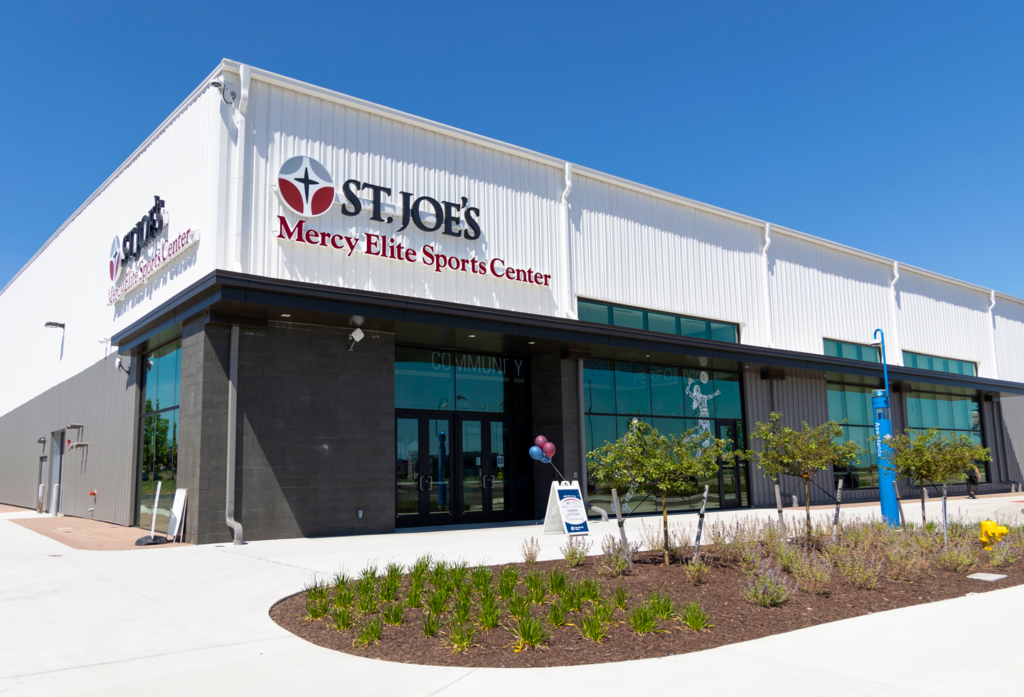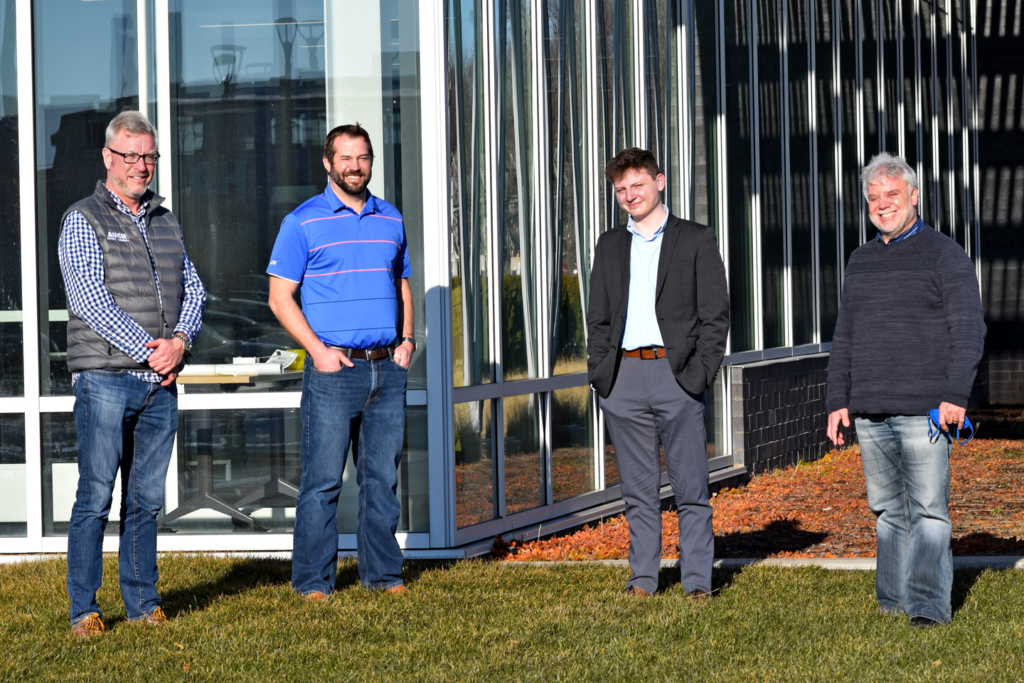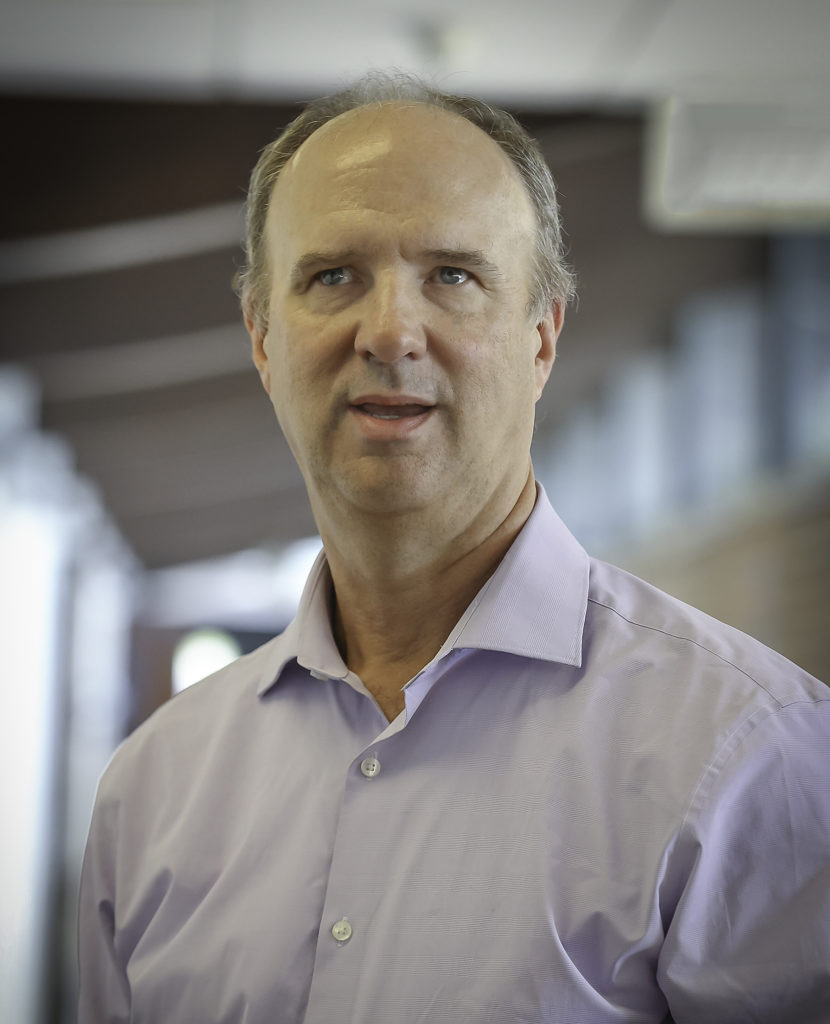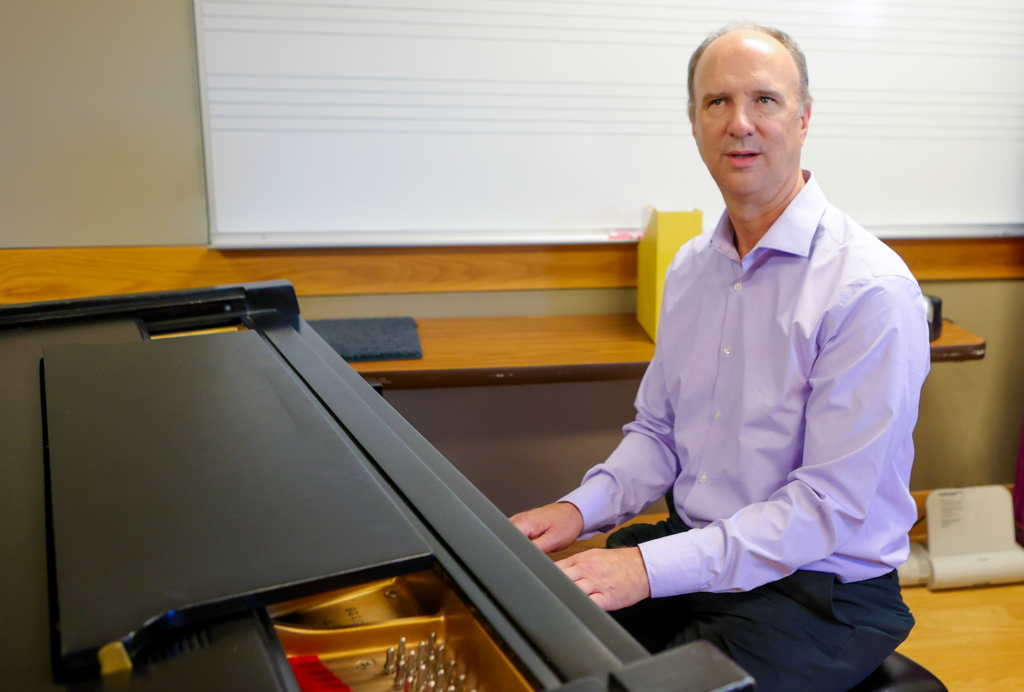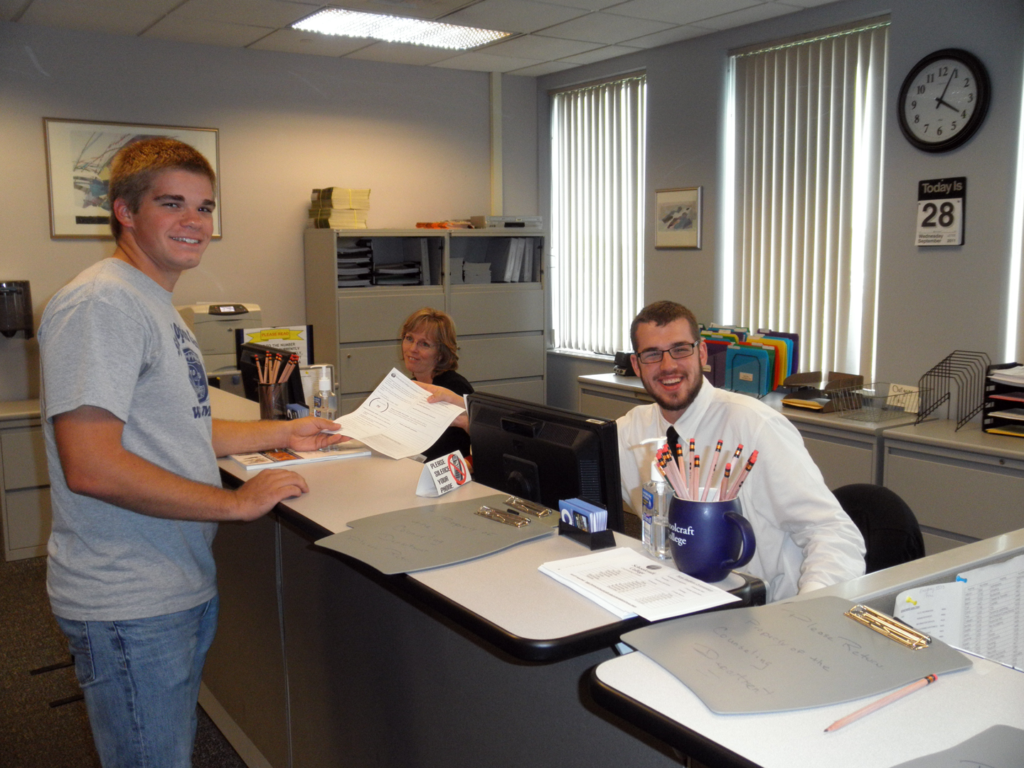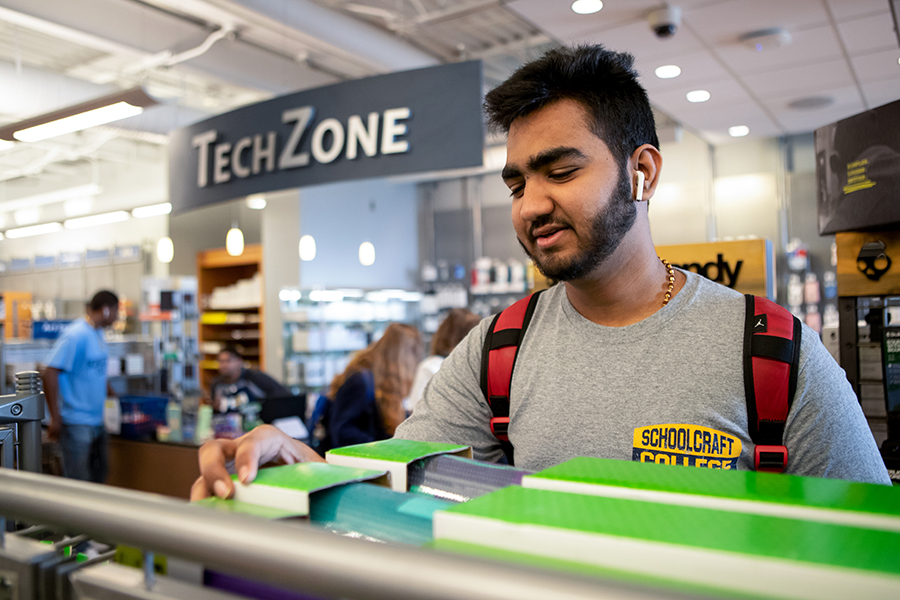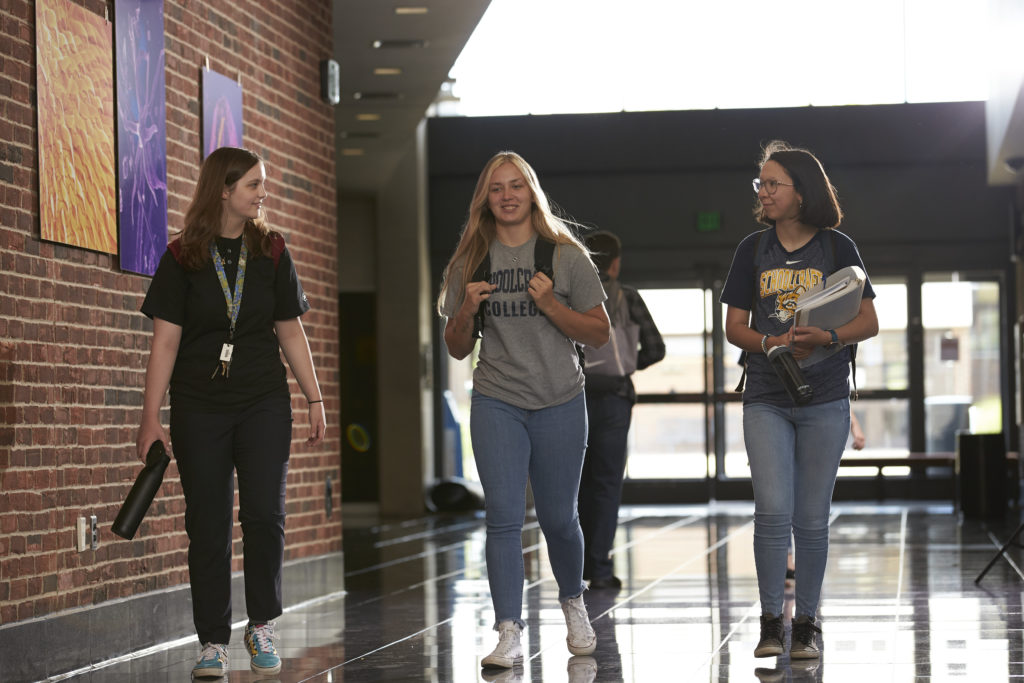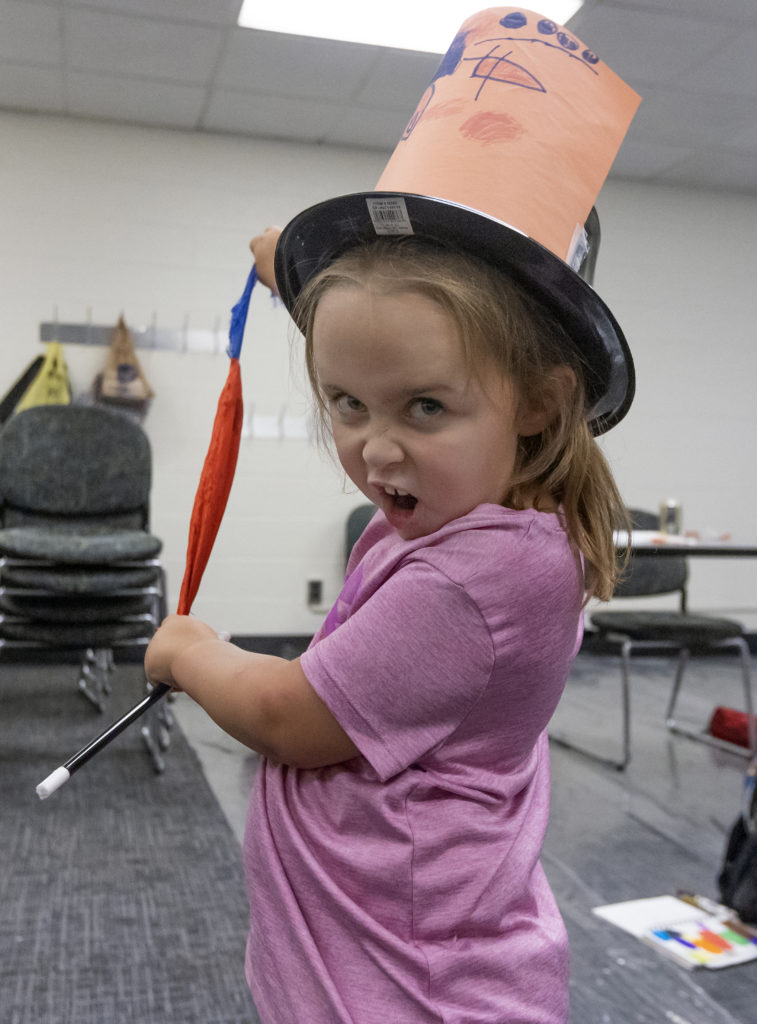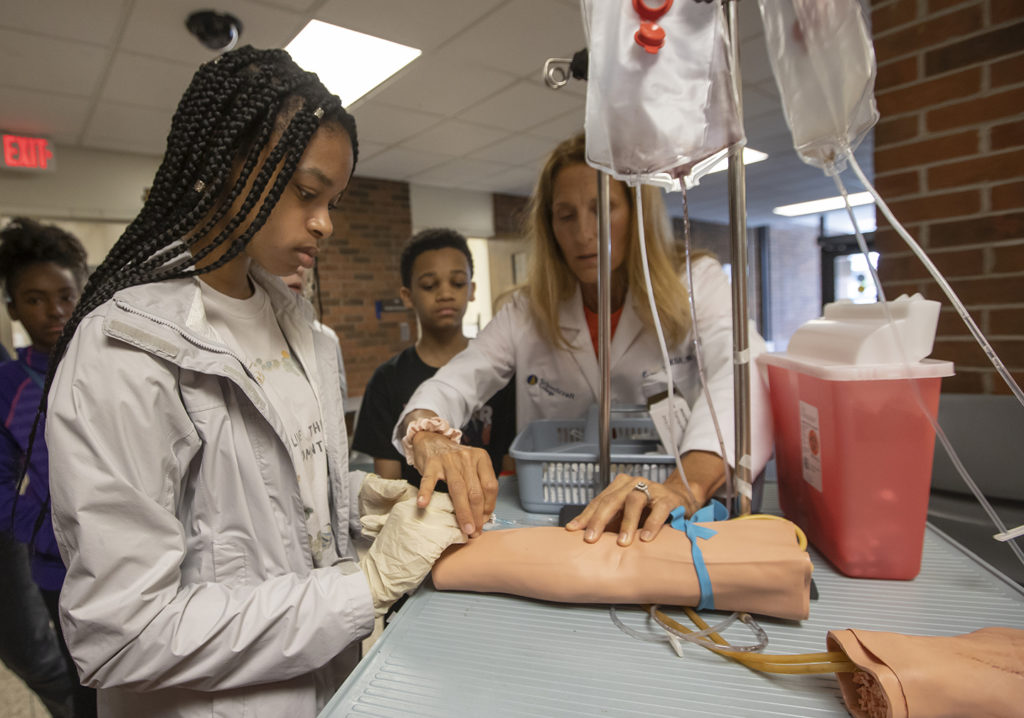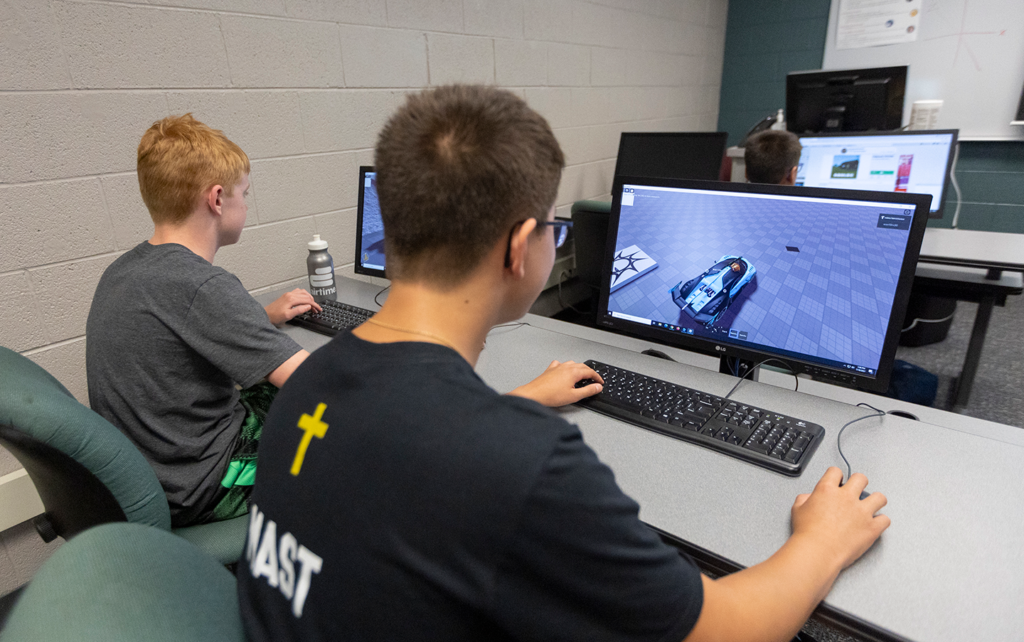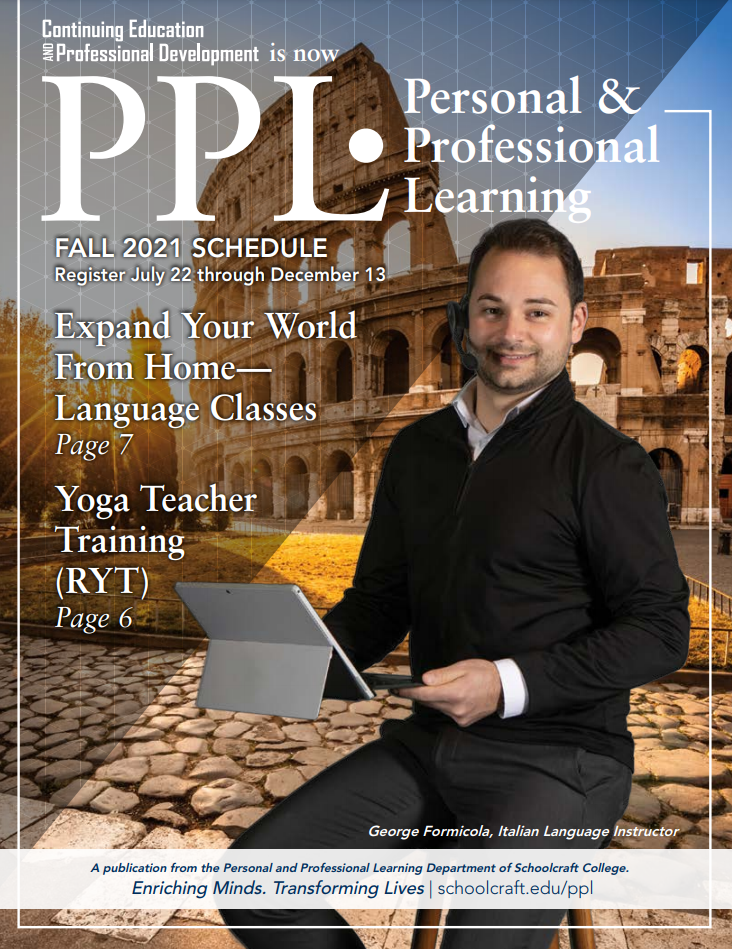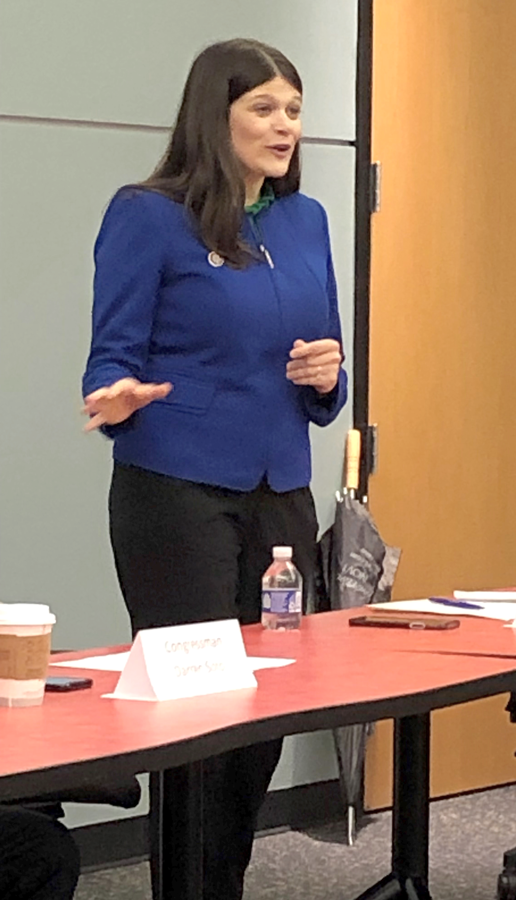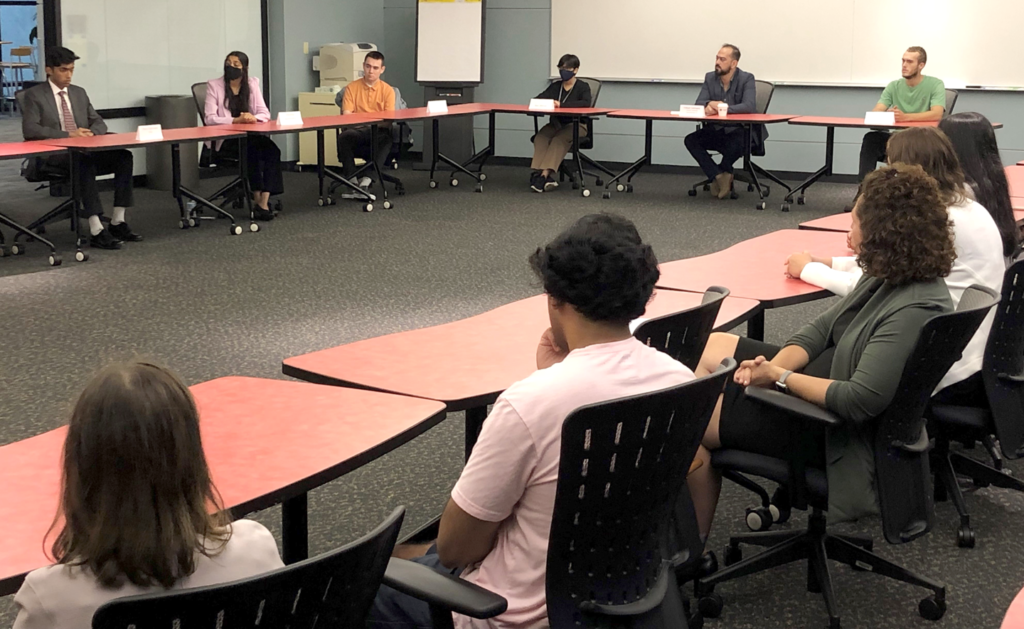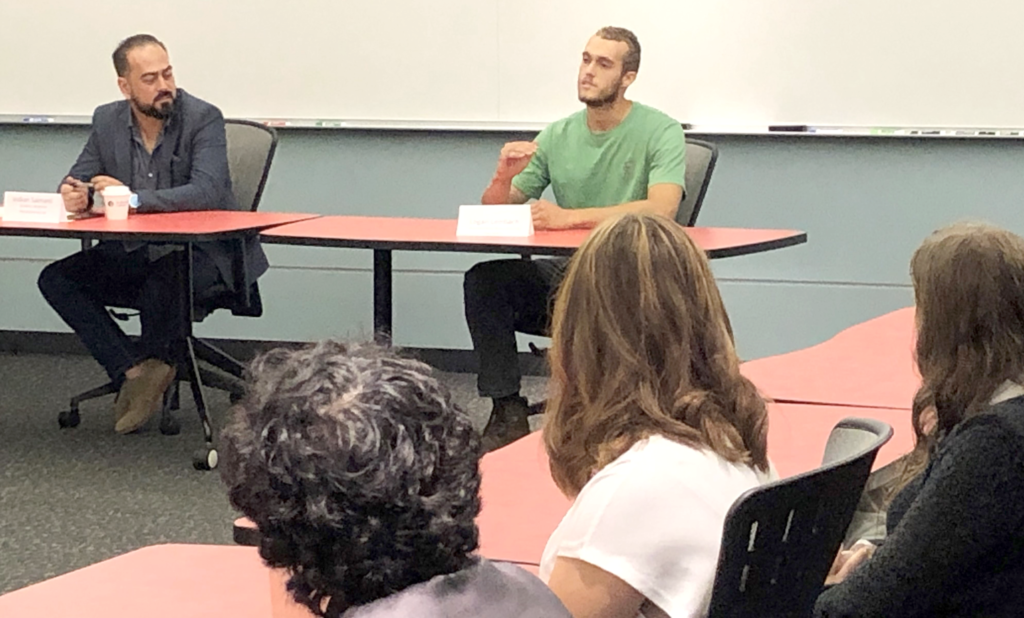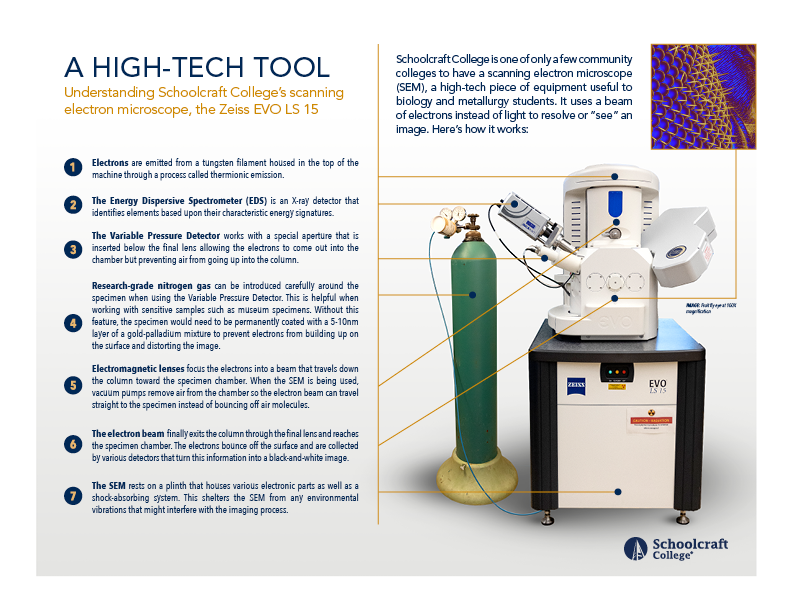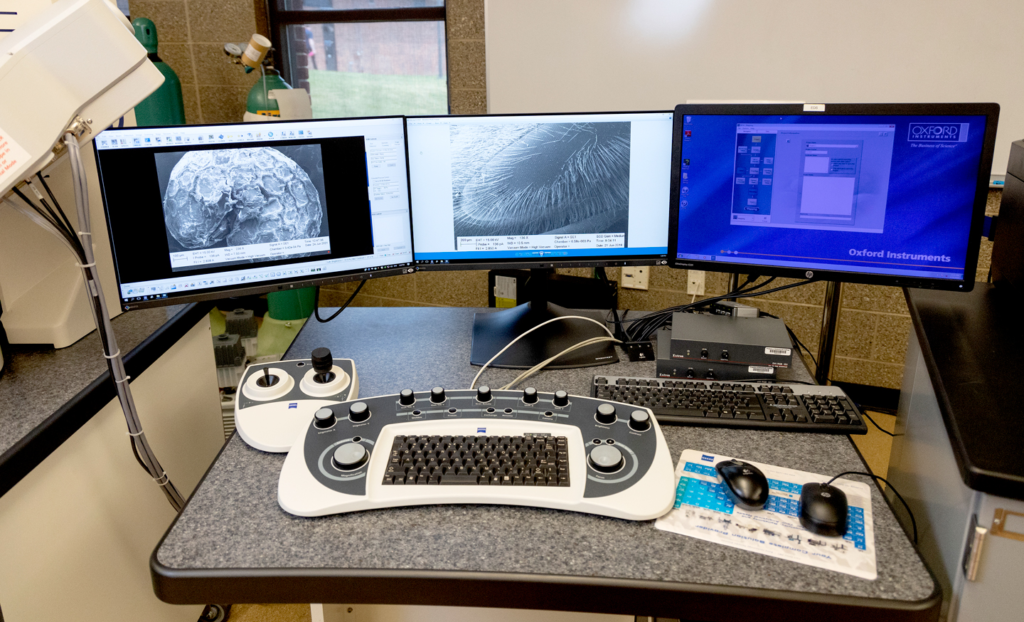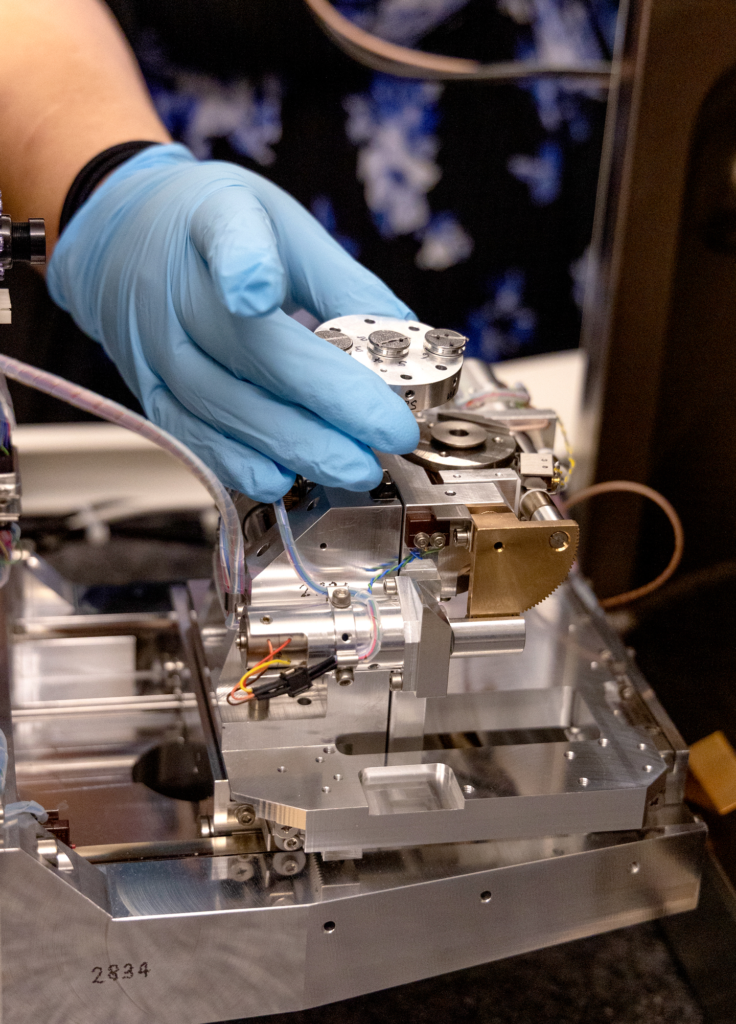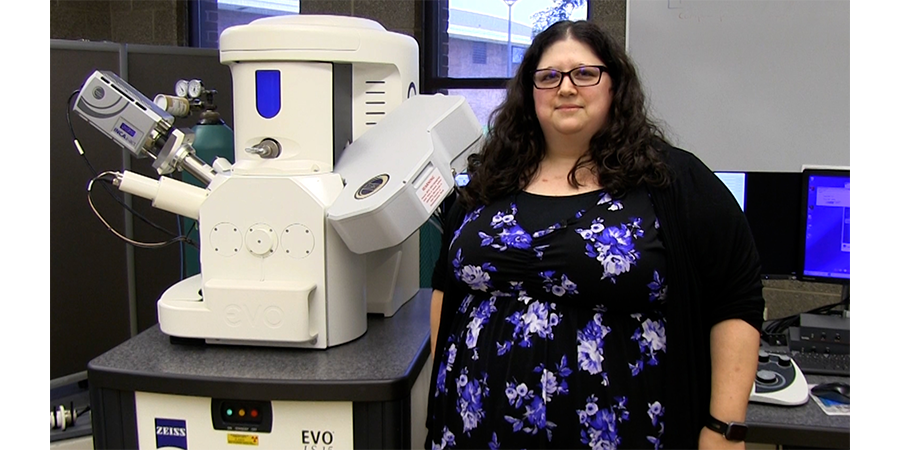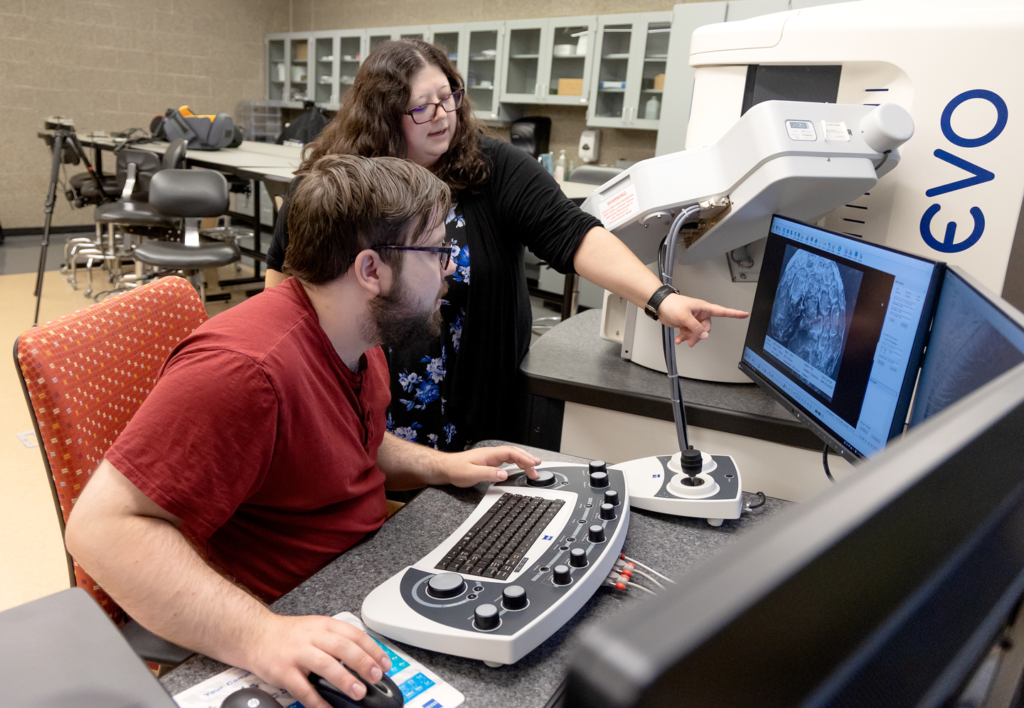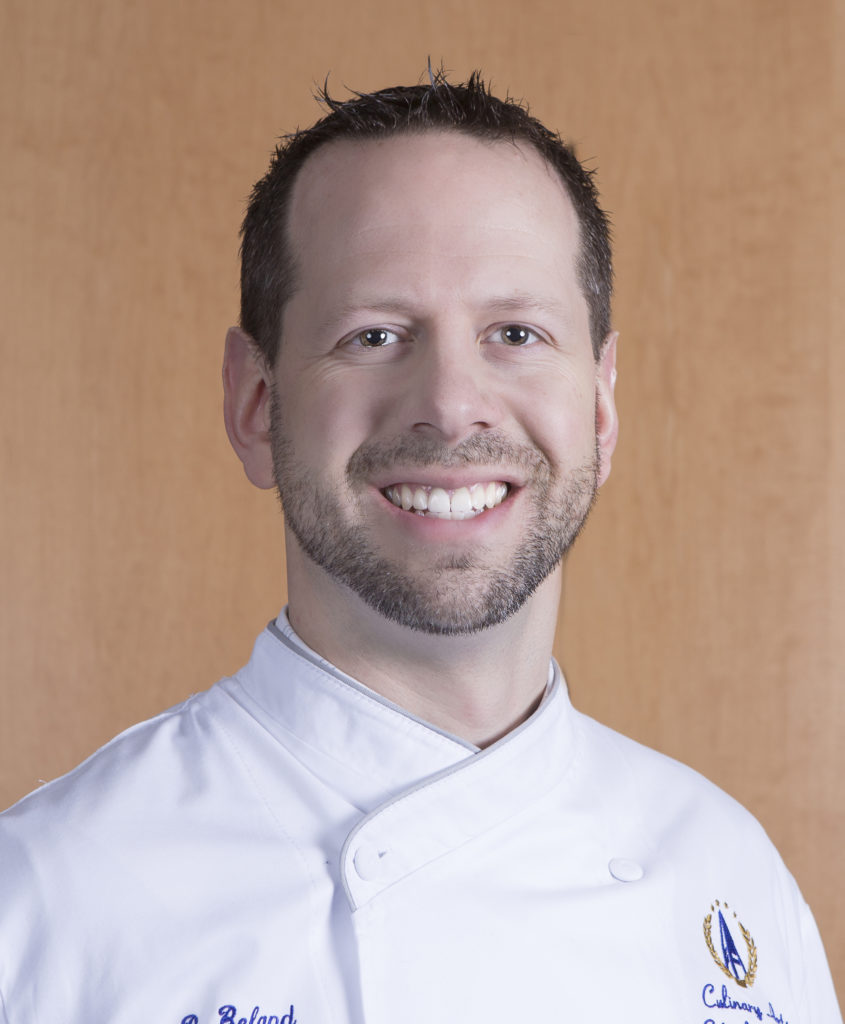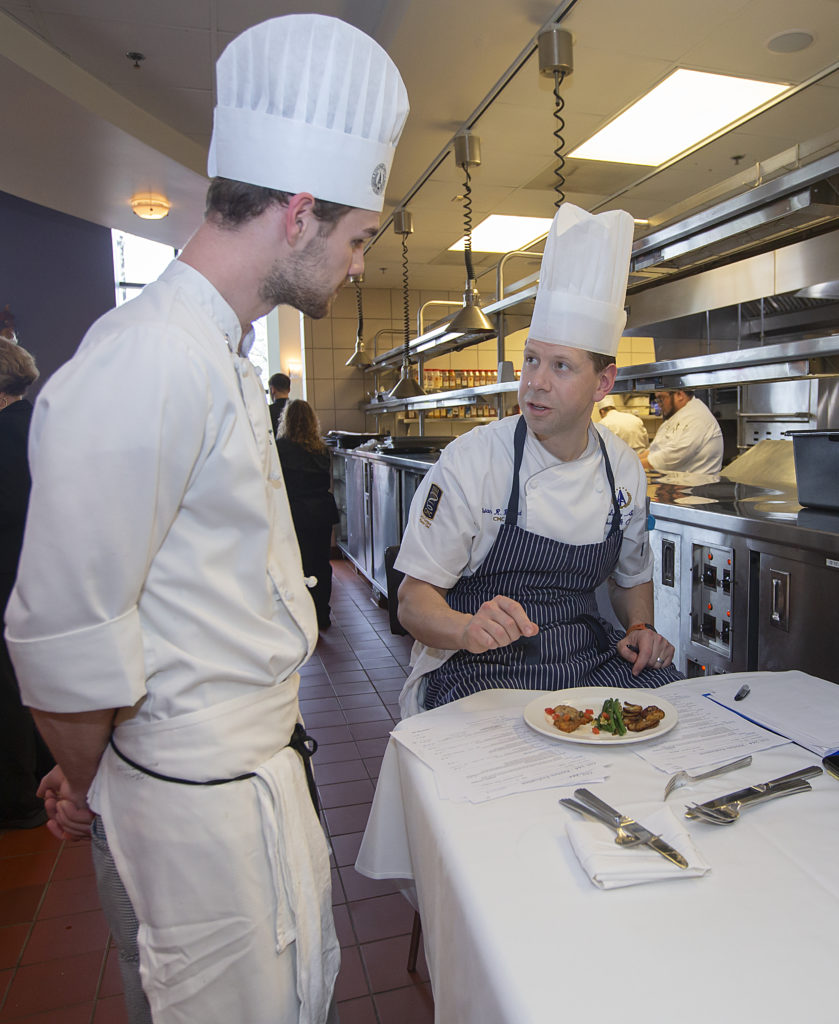Students learn how the human body moves, effects of disease, age and exercise
In a corner of the new St. Joe’s Mercy Elite Sports Center, away from the near-constant thumping of volleyballs being hit, squeaking of athletic shoes and enthusiastic shouts of competitors, sits a seemingly quiet classroom.
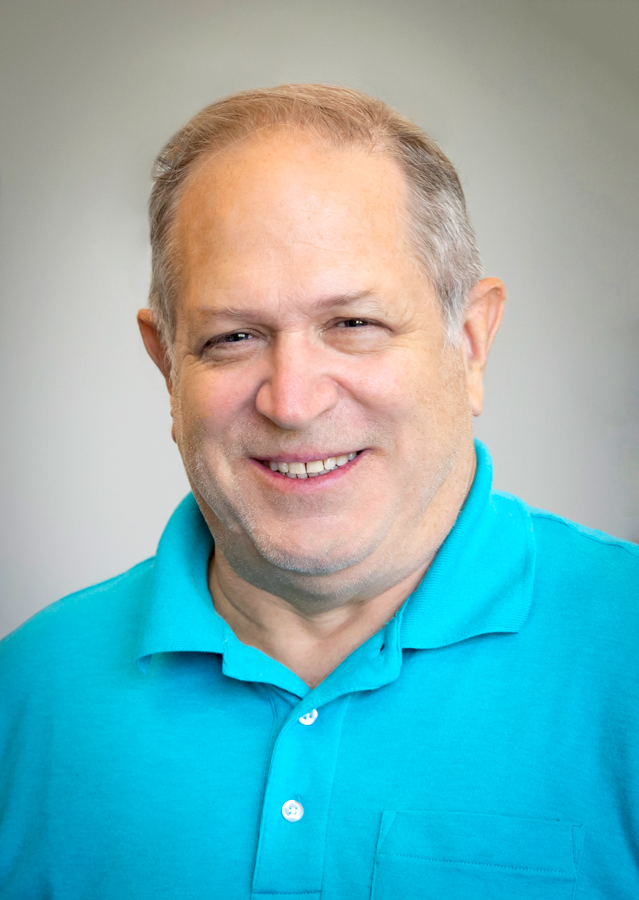
Once you enter, however, the space bursts to life with an array of high-tech machines dedicated to Schoolcraft College’s Movement Science program. As the name suggests, Movement Science students study how the human body moves as well as how it is affected by disease, age and exercise.
The program offers a solid foundation for graduate school and/or careers in medicine, pharmacy, public health, fitness training, exercise physiologist, and physical and occupational therapy. The College offers both a one-year certificate (8 courses, 24 credits) and an Associate Degree (18 courses, 60-63 credits).
“We have three new and important pieces of high-tech equipment that will enhance the Movement Science program this fall and give students an advantage whether they go on to work in the field or transfer to a four-year institution,” said Mark Papineau, program coordinator for Movement Science.
“We have three new and important pieces of high-tech equipment that will enhance the Movement Science program this fall and give students an advantage whether they go on to work in the field or transfer to a four-year institution.”
Mark Papineau, program coordinator for Movement Science.
“The technology provides objective measures to help evaluate body composition, cardiovascular fitness, and the strength, endurance, power and range of motion of major joints and muscles. Using the results can help determine areas or deficiencies that need improvement. The experienced movement science professionals who can utilize this high-tech equipment and the data produced are highly sought-after.”
Here’s a closer look at the new high-tech testing tools.
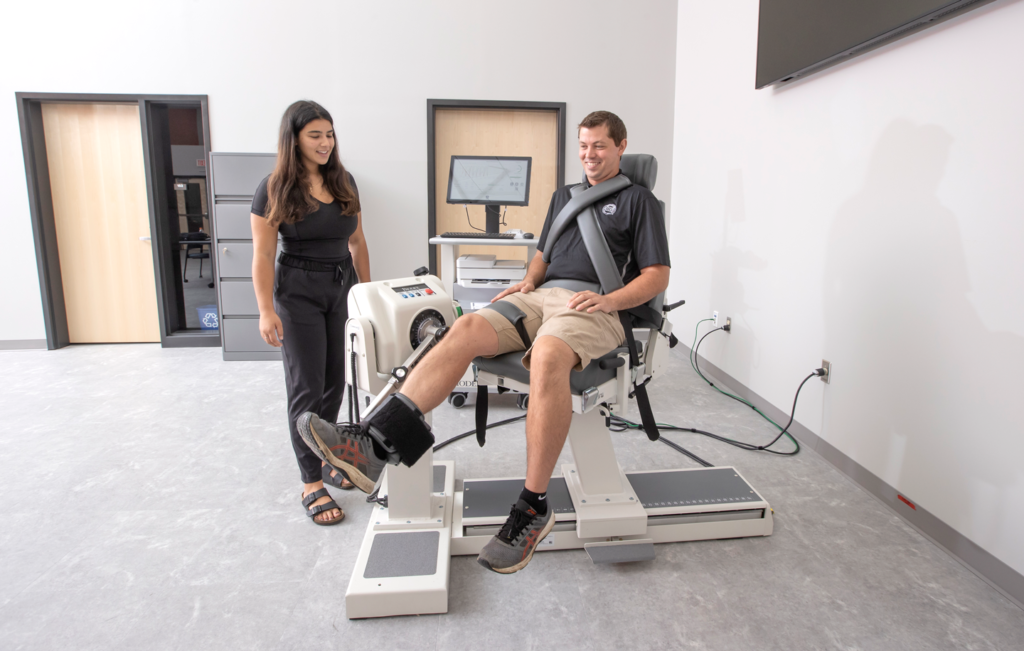
The Biodex System Isokinetic Dynamometer is a high-tech device used for muscle testing and rehabilitation by movement science professionals.
- This isokinetic dynamometer allows you to evaluate strength, endurance, power and range of motion of major joints and muscles, and provides detailed objective data results of their performance. The results can be used to determine the areas or deficiencies that need improvement.
- The dynamometer provides objective measures and targeted exercise to help manage common sports injuries and determine safe return to play for athletes.
- Provides consistent, accurate data.
- Gives muscle performance measurements.
- Can be used for rehabilitation.
- Can be used for conditioning.
- Can help older adults strengthen the muscles associated with ambulation.
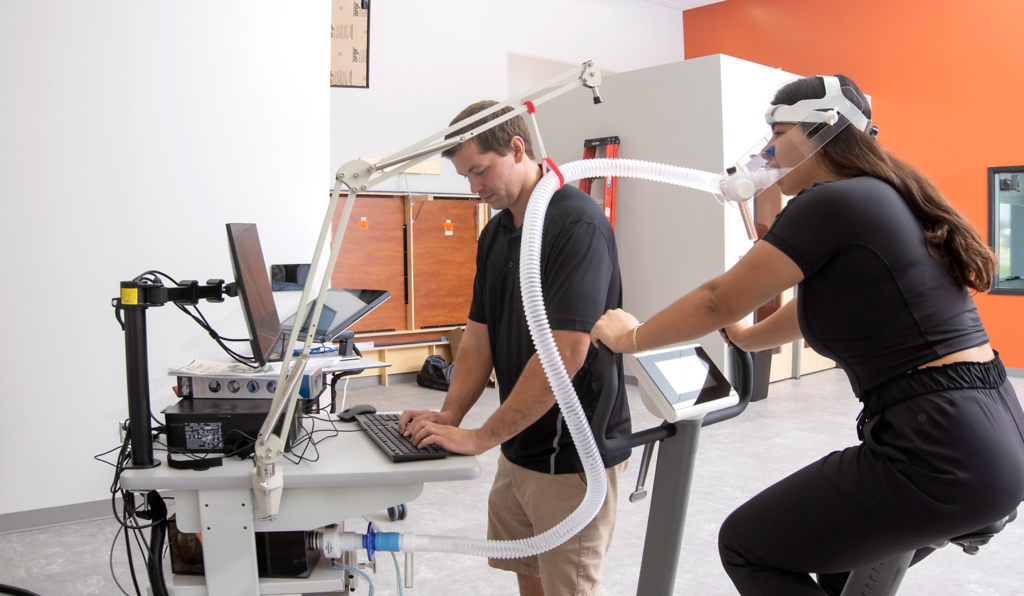
The Parvo Metabolic Cart Heart Monitor with treadmill or bike. This is a compact integrated metabolic measurement system for cardiopulmonary stress testing, indirect calorimetry, and maximal oxygen consumption measurement.
- Used by NASA and U.S. Olympic Training Centers, biophysicists developed this cutting-edge technology that delivers accurate metabolic measurements under the most demanding exercise conditions.
- Test subjects can use either the bike or the treadmill, while the Oxygen Analyzer and the Carbon Dioxide Analyzer measure the respiratory gases, oxygen and carbon dioxide.
- It also analyzes data on:
- Calories per minute of expenditure.
- Where the calories are coming from – carbohydrates or fat sources in the body.
- It is used for exercise physiology, athletic testing with high accuracy at high workloads, and it is used for high-altitude training.
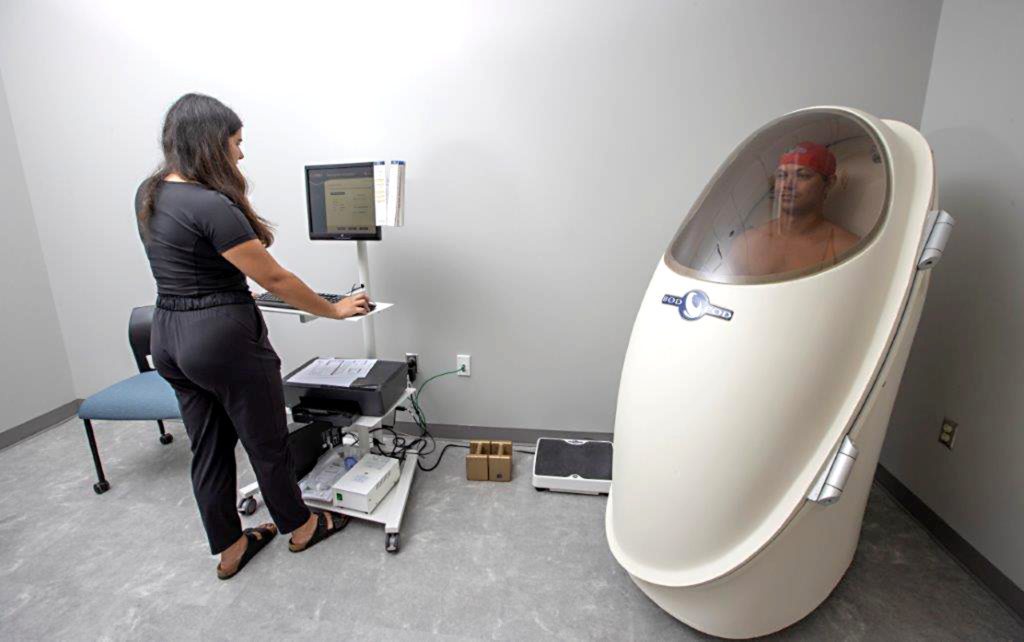
The Bod Pod is a body composition tracking system. The system will be used for body composition testing that students will be taught to perform and provide information for them to use in developing exercise prescriptions.
The Cosmed USA, Inc. Bod Pod is the most current state-of-the art system for determining body composition. The Bod Pod system uses whole-body densitometry via air displacement plethysmography (ADP) to determine body composition (percent body fat and fat-free mass) in children and adults, and can accommodate a wide range of populations.
A full test requires only about five minutes, and provides accurate, safe, comfortable results.
- The testing is fast, accurate and completely non-invasive.
- It can be used for assessing special populations such as young children from 2-6 years, the elderly, or disabled.
“The use of the high tech equipment for data analysis and formulating targeted lifestyle changes and conditioning is a skill we can give our students and open career pathways they may not have considered before,” Papineau said. “Students who go on to become movement science professionals utilize education, lifestyle intervention, and specific exercise programs to train, condition, and rehabilitate the fitness, recreation, and athletic community.”
Huge benefit to students
Papineau is eager to share the benefits of the equipment as they can immediately apply what they are learning during the lecture portion of the classwork.
“There are more opportunities to teach students in the expanded lab space and to serve other campus shareholders on this testing equipment,” he said. “Having the lab and the classroom in the same facility means that students can learn through lecture and practical demonstration about fitness assessment protocols. “
- Students in class will learn to critically analyze why a particular fitness test is utilized, and the standard procedures for conducting the test.
- Going into the lab they can learn how to properly administer tests and how to read the analysis from the test results.
And with that knowledge, they can better understand specific fitness testing protocols. Specifically, the students will be able to:
- Compare test results with normative data to create a fitness profile.
- Determine the advantages and disadvantages of selecting a specific fitness test over other tests that evaluate the same parameters.
The possibilities seem almost limitless.
“We have expanded the potential for our students and the athletes who train here, aiding in-patient recovery, rehabilitation, and providing better outcomes and research,” Papineau said. “Our students and community shareholders will be able to help weekend athletes and professionals by utilizing education, lifestyle changes and specific forms of exercise along with the latest data obtained on our equipment. They will teach others how to reduce injury and re-injury with targeted software, research, and clinical guidelines.”
David S. Kesler, D.C. (Doctor of Chiropractic) and Associate Dean of Health Professions, shares Papineau’s enthusiasm and looks forward to serving Schoolcraft College students and the community.
“The Movement Science Program has brought together a panoply of rare and specialized equipment that will be of great benefit to students and athletes in and around northwestern Wayne County,” he said.
Learn more about Schoolcraft College’s Movement Science program.

